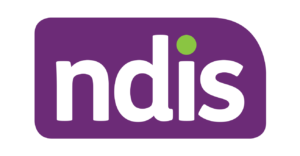Year 12 is a tough time for any young person, but in a new report by Children and Young People with Disability Australia (CYDA), and researchers from The University of Melbourne and University of New South Wales, young people with disability talk about the additional challenges they face as they finish school and make the transition to work or higher education.
Researchers Dr Catherine Smith and Professor Helen Dickinson co-designed the study with young researchers with disability employed by CYDA. Dr Smith emphasises the importance of co-design in research about disability. “It presents opportunities to generate data that is informed and guided by the expertise of lived experience.”
The researchers found a laundry list of barriers encountered by young people with disability as they finish school, including a lack of continuity accessing assistive technology, low expectations of educators leading to a lack of post-school opportunities, and difficulty accessing appropriate accommodations.
CYDA chief executive officer Skye Kakoschke-Moore said that disability, education and employment systems are fragmented and difficult to navigate.
“The onus is on young people to work it all out while also studying for exams. Many depend on family or their community to research and advocate for them, but not everyone has the same informal supports.
“There is no central place for information about how to access what they need. Some turn to charities like Vision Australia, others have the NDIS. Some things can be organised through high schools, university programs, local councils or employment services, but there is no guidebook.”
Gi Brown graduated Year 12 in 2020 and is now working toward a bachelor’s degree in Social Work. Like the study participants, Gi had difficulty accessing appropriate support during Year 12. As an Autistic student with ADHD and chronic illnesses, Brown needed access to medical devices and medications during exams, a separate exam room so as not to be distracted (or distract other students) and extra time for bathroom breaks and moving around as needed.
“The disability support department was quite literally a broom closet that fit one table in it,” said Brown. “Seeking out support, in of itself, was something that was, to a degree, granted by the school, but it was something that came with a feeling of shame, or like you were a burden, or that you were lesser because you were asking … making it known that you’re making their job harder … ‘why can’t you just suck it up?’ almost.”
Participants in the study also spoke about the emotional and financial burden of having to provide medical proof of disability over and over to different officials.
Mac Zamani, completing Year 12 this year, recently applied for special examination arrangements due to complex chronic health conditions and dyslexia. He describes some of the barriers inherent in the process.
“It had to be a GP that you’d been seeing for at least 12 months. You couldn’t go get it from your bulk-bill clinic where you don’t have a regular person … it assumes a degree of financial access, and you can’t see a specialist at your hospital because your appointment is, what? Once every three months? It’s not reliable.”
Zamani is completing Year 12 over two years at TAFE, having found it difficult to find a high school that would allow him the flexibility he needed to succeed.
“I have seizures now, I use a wheelchair … that’s when the education system could no longer support me … I was kind of forced into it [TAFE]. We looked at all these other schools in the area and … I couldn’t get a single school. This was over a year’s work, so many applications.”
Zamani says he wishes he had known earlier that doing Year 12 over two years was an option and how to access it, so he might have planned around it.
“It would have been so helpful to know my rights, because looking back there were so many things that were neglected, or I didn’t think I was allowed to ask for or push for, that was actually my rights.”
Zamani has plans to study occupational therapy and become a mental health OT for trans youth.
“I’m fully prepared that university is going to be a fight … It shouldn’t be, but I’m used to it … I’m thinking strategically what my barriers are, who are my support, getting the connections, planning backups, but I shouldn’t have to think this far ahead.”
Ms Kakoschke-Moore says a more individualised approach to support during school and the transition to work or higher education is needed.
“Young people with disability are one of the most disadvantaged cohorts in our education system and labour market. We need government investment in co-designed programs that support young people to thrive as they complete school and enter post-school life.”
A full copy of the report can be found here.
For more information, please contact:
Naomi Chainey
Media and Communications Advisor
Children and Young People with Disability Australia
[email protected]
0401 302 068







